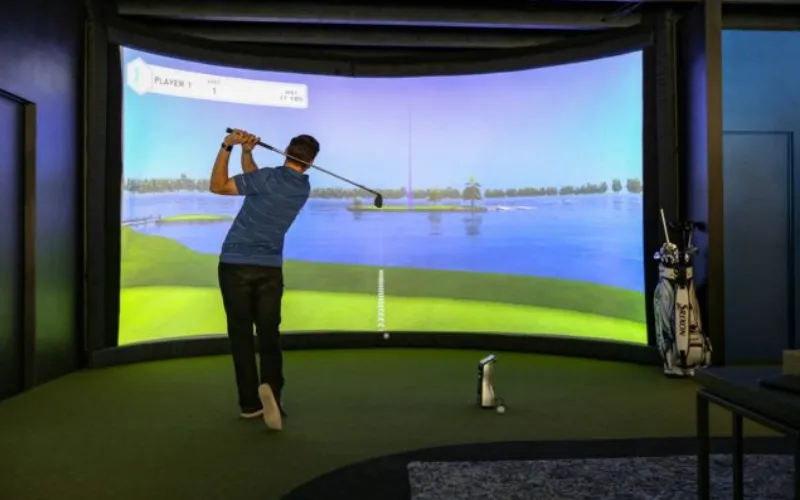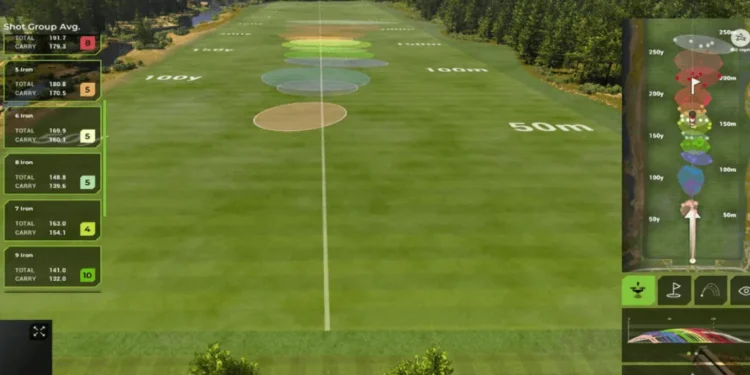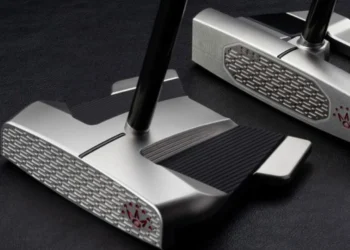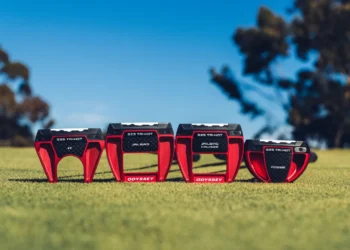New Study Shows Golf Simulators and Launch Monitors Lead to Performance Gains
A new study from Ace Indoor Golf suggests that launch monitors and golf simulators are not only growing in popularity, but also delivering measurable improvements in player performance.
From increased accuracy and distance to lower scores, the findings highlight how this technology is helping a wide range of golfers sharpen their game more effectively.
As more golfers turn to home simulators, driving ranges, and indoor golf centres, access to professional-level feedback is no longer limited to tour players or elite practice facilities.
Affordable options have opened the door for players of all ages and abilities to practise with purpose.
Who’s Using Golf Simulators?
The study reveals a broad demographic of simulator users, with ages ranging from teens to players in their 70s. Ownership isn’t limited to private club members either — half of respondents reported not belonging to a club.
What unites them is a shared enthusiasm for golf and a desire to improve. In fact, 97% of users surveyed play more than 25 rounds per year.
With launch monitors now available for under £550, many golfers are building home practice areas in garages, spare rooms, or garden offices.
This accessibility is a key driver behind the increase in usage, particularly among those who want to train more regularly without heading to the range.
Frequent Use, Measurable Gains

One of the most striking findings in the research is how often simulators are being used.
According to Ace Indoor Golf, 68% of simulator owners use their setup more than 10 times per month — effectively practising every other day or more.
This regular access to feedback-based training has been shown to produce significant results:
- 96% of simulator owners reported game improvement
- Average score reduction: 5.27 strokes per round
- 80% saw improved shot accuracy
- 44% increased their distance
- 53% reported lower scores overall
“Helping me discover my ‘why,’ the device has taken the guesswork out of improving my swing,” wrote Nick Dimengo, Golf.com Instruction Editor, in a 2023 article reflecting on his experience with launch monitor use.
Data That Makes a Difference
Simulators give golfers a detailed breakdown of their swing, from club speed and path to launch angle and spin rate. This data allows for targeted improvements and removes the trial-and-error often associated with traditional practice.
One mid-handicap golfer from Chicago commented:
“I use my simulator three times per week and have seen dramatic improvements. I was able to improve my driving distance by as much as 40 yards, gained 10 yards with my 7-iron and have lowered my score by about four strokes per round. I’m now using it to work on my short wedges. Buying a simulator was a great investment in my game.”
Confidence and Repetition
Beyond the numbers, golfers are also gaining confidence by using simulators in a private, pressure-free environment.
Many launch monitor systems now include tools like bag mapping and shot dispersion tracking, allowing players to learn their tendencies and make smarter club selections on the course.
This type of focused, repeated training — whether working on swing mechanics or dialling in yardages — can be a difference-maker, particularly under pressure.
While 96% of simulator owners use their units for practice, the study also found that 76% play full virtual rounds. Interestingly, a quarter of respondents also use their simulators for other purposes, including football, baseball, and as home entertainment systems for films or gaming.
Why It Matters
For golfers already committed to improving, a simulator or launch monitor offers a practical and effective way to make progress year-round. With clear benefits in accuracy, distance, scoring, and mental preparation, the technology provides a solid return on investment for players at all levels.
As simulator setups become more customisable and affordable, it’s clear they’re no longer just a luxury — they’re a practical tool for modern game improvement.
To learn more about simulator packages or performance insights, visit www.aceindoorgolf.com.
























